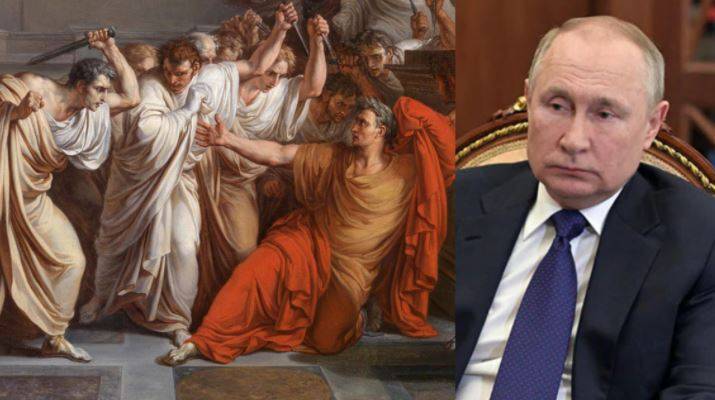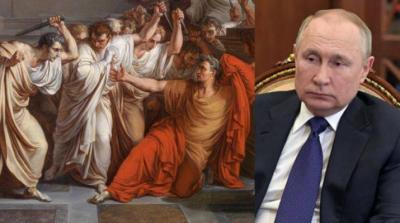Famous American senator, Republican Lindsey Graham, a congressman from South Carolina for 17 years, called for the assassination of Russian President Vladimir Putin, suggesting a treacherous method similar to the assassination of the famous Roman Caesar, Julius Caesar, on March 15, 44 BC. This prompted a swift response from the Russian embassy, which demanded an official explanation from U.S. authorities regarding Graham's remarks and a condemnation of his statements.
The embassy stated on its official Facebook account: "We demand a strong condemnation and an official explanation for the criminal statements of this American," referring to the senator.
Moreover, Russian Ambassador to Washington, Anatoly Antonov, emphasized that Graham's statement is unacceptable and outrageous. He said, "The level of Russia phobia and hatred for it in the United States is beyond measure. It is impossible to believe that a senator in a country that preaches moral values as a guiding star for all humanity can call for terrorism as a means to achieve Washington's objectives on the international stage!"
Graham is known to be a long-time adversary of Putin, but his animosity has intensified since analysts began predicting a Russian military operation in Ukraine. On February 21, he tweeted a series of statements claiming, "Putin's decision to recognize Luhansk and Donetsk as independent is a violation of the Minsk Agreement and a declaration of war against the Ukrainian people. [...] His decision should be met with severe sanctions that would destroy the Russian currency and crush the Russian oil and gas sector."
However, following the Russian military campaign in Ukraine, the 67-year-old Graham actively wrote many provocative tweets against Putin, particularly one that appeared last night on Twitter, where he has two million followers. In this tweet, Graham questioned whether there exists a colonel in the Russian army willing to try to assassinate Putin, likening it to German Claus von Stauffenberg, who nearly killed Hitler but failed in his attempt. He also asked whether there was another "Brutus" among the Russians to free Russia from Putin.
The phrase refers to Marcus Brutus, the famous Caesar's friend, who William Shakespeare gave a significant role in his play "Julius Caesar," which narrated how his friends conspired against him with a plan they prepared on March 14 at Brutus's house and under his leadership.
The next day, each of them stabbed him with daggers outside the Roman Senate, with the most painful blow coming from Brutus in his back. When the wounded Caesar turned to look at his assassins, he said nothing to any of them, except his famous Latin phrase to his close friend: "Et Tu, Brute?" (Even you, Brutus?).




